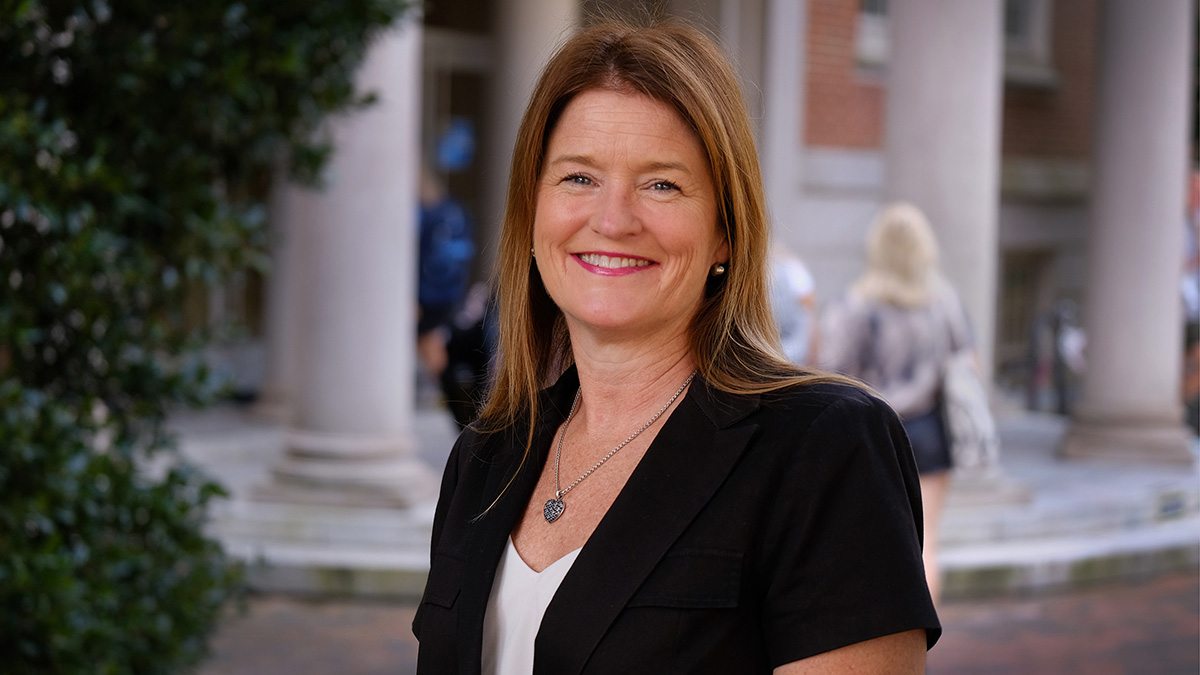An international forum to end bullying comes to North Carolina
UNC School of Education faculty member Dorothy Espelage will lead a ‘critical’ gathering at the 2023 World Anti-Bullying Forum to help end the worldwide problem.

Dorothy Espelage, the William C. Friday Distinguished Professor of Education at the UNC School of Education, is one of the world’s leading academic authorities on student well-being, school safety and bullying.
For more than 25 years, she has conducted research on issues around youth violence and has dedicated her career to creating interventions, policies and laws that protect students and make schools safer.
She is credited with introducing the notion that school-based bullying is best understood as a behavior that emerges over time, is maintained as a group phenomenon, and serves as a precursor to other forms of youth violence.
Her research and advocacy continue to create impact in her field and in schools.
“When we started this work in the early ’90s, one state in this country had an anti-bullying law,” Espelage said. “Every state has some form of legislation now.”
A little over a year from now, from Oct. 25-27, 2023, during World Bullying Prevention Month, Espelage and UNC-Chapel Hill will host the next World Anti-Bullying Forum, a biennial convening of international scholars and practitioners focused on understanding and ending bullying among young people.
Following is a Q&A with Espelage on the importance of the World Anti-Bullying Forum, what’s changed since she delivered the Forum’s first address in 2017, how bullying and bullying prevention work differs around the world, and what role bullying plays in a broader view of school-based violence.
What does it mean for the University of North Carolina at Chapel Hill to host the World Anti-Bullying Forum?
The WABF has been held twice in Sweden and once in Dublin, and it’s a forum that brings researchers, practitioners and policymakers together to address the question: “How can we prevent bullying?”
Why it’s important is that this forum has not been held in the U.S., and currently we don’t have any international bullying prevention activities such as this happening in the U.S. We used to have the International Bullying Prevention Association conferences, but they haven’t met since 2019. That really has been a loss to the field. This forum coming to the U.S. — as opposed to
China, Russia and Norway — is a big deal.
What people may not understand is that UNC-Chapel Hill, Duke, NC State, and area HBCUs including North Carolina Central University and Fayetteville State University have been engaged in decades of work on bullying, so it’s almost like we’re bringing it home. We have prevention science and public health here at UNC-Chapel Hill. Duke and UNC’s psychology programs have dominated the developmental psychology field and what we’ve known about bullying for the last 50 years. There’s a huge concentration of bully researchers and practitioners in the Research Triangle so in some ways it really is celebrating our origins and our roots.
That said, it’s also important to know the bullying efforts in the U.S. have lagged behind those of other countries. We led in the beginning but have gone backward because of the political climate around bullying and social emotional learning.
How important is this event and anti-bullying research for the U.S. right now?
When you review the systematic reviews or the meta-analyses, or you’re examining how effective certain intervention programs are across the world, we in the U.S. fare at the bottom. The reductions of bullying in European countries and internationally – in Australia and Canada – they’ve done a better job than the U.S.
For U.S.-based researchers, we need to figure out why that is. What is it about the U.S. context that we have only modest reductions of 10-12% of bullying, but then our colleagues have reductions that range from 20-50% in some places. This event offers a venue for us to interact with our peers, particularly ones in Canada who have been very, very successful at reducing bullying at higher rates. Then learning from Australia and Africa and Asia; we’re going to be able to talk to them about their success in their home countries. It’s just a good reset for us to figure out why is it that our peers (1) have been successful in reducing bullying and sustaining those reductions where we have not, and (2) have done so much more in the area of cyber bullying and the metaverse.
There’s going to be a theme here about the metaverse. We’ll have the chance to talk to peers about some of the best cyber bullying intervention programs that have come out of Finland, Germany, Spain, and Italy. We have almost zero cyber bullying interventions in this country because we focus so much on face-to-face bullying and have ignored the influence of media and technology. And now, we’re hoping to bring in Meta to have conversations about the worlds that kids are creating. A lot of people think this is new. Second Life has been around for decades, and Meta reminds me of Second Life.
This WABF is going to give us an opportunity to recharge and rethink… maybe stop doing the things we’re doing in K-12 settings that are not moving the needle. I think it’s going to be a good combination of topics and ones that can help us rethink some of our strategies in big systems.
That said, it’s not fair to compare the U.S. to, say, Finland, a smaller, less diverse country.
Read more about Espelage and her researching into bullying on the School of Education website.




